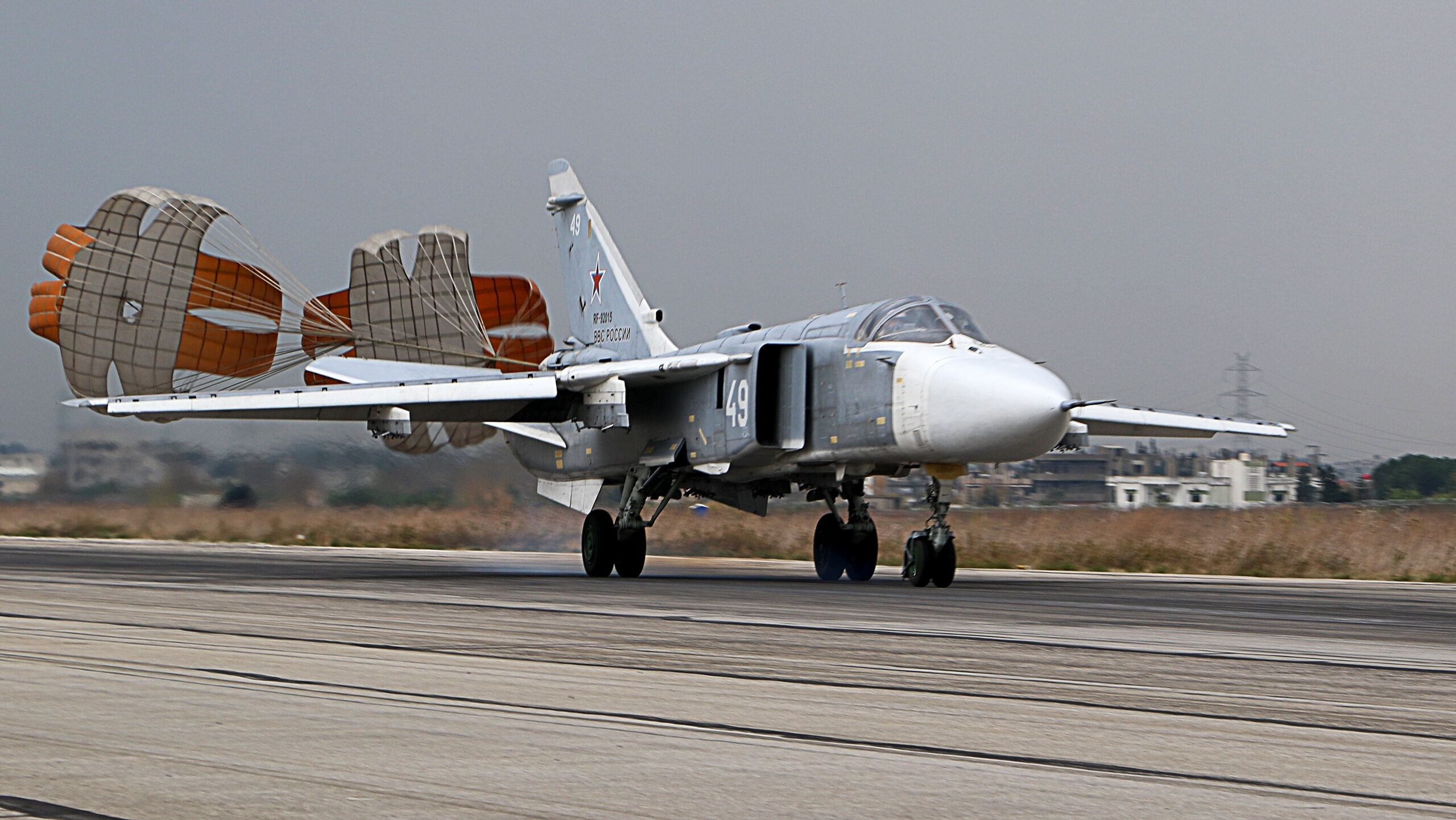‘Nearly 7,000 Victims’: Rights Group Presses Russia on Syria at 10-Year Mark
The Syrian Network for Human Rights says Moscow’s intervention helped the Syrian government retake key cities and left a long trail of civilian deaths, damaged infrastructure, and stalled accountability
On the 10th anniversary of Russia’s 2015 military intervention in Syria, the Syrian Network for Human Rights (SNHR) on Monday released a detailed report in Damascus and online, urging Moscow to apologize publicly to victims, pay comprehensive compensation, and hand over Bashar Assad, who, the report says, sought refuge in Moscow after his regime fell in December 2024. The group argues Russia altered the war’s course by backing the Syrian government with airpower, advisers, and repeated UN vetoes, enabling the recapture of major population centers and leaving a trail of civilian casualties and shattered infrastructure.
SNHR says Russia’s September 2015 entry marked a turning point: consistent military and political support helped Syrian government forces retake Aleppo, Eastern Ghouta, Daraa, and parts of Idlib. Although major operations ceased after the regime’s fall, the report says the intervention’s effects remain visible in displacement, destruction, and continuing violations. Diplomatically, Moscow used its UN Security Council veto 18 times and voted against condemnations in 21 consecutive Human Rights Council sessions while rallying allies to block accountability, the report adds.
The documented toll (Sept. 2015–Dec. 2024), according to SNHR: 6,993 civilians killed, including 2,061 children and 984 women; 363 massacres; 1,262 attacks on vital facilities (224 schools, 217 medical facilities, 61 markets); and 70 medical personnel and 24 journalists killed. SNHR argues that the high share of women and children points to widespread strikes on residential areas.
“[Russia] has left nearly 7,000 victims over 10 years, nearly half of them women and children, using prohibited weapons and systematically targeting hospitals and schools,” said Fadel Abdul Ghani, SNHR’s director. “Any discussion of future relations with Russia must begin with its official acknowledgment of responsibility and the handover of Bashar Assad to justice.”
Give the gift of hope
We practice what we preach:
accurate, fearless journalism. But we can't do it alone.
- On the ground in Gaza, Syria, Israel, Egypt, Pakistan, and more
- Our program trained more than 100 journalists
- Calling out fake news and reporting real facts
- On the ground in Gaza, Syria, Israel, Egypt, Pakistan, and more
- Our program trained more than 100 journalists
- Calling out fake news and reporting real facts
Join us.
Support The Media Line. Save democracy.


[Russia] has left nearly 7,000 victims over 10 years, nearly half of them women and children, using prohibited weapons and systematically targeting hospitals and schools
Several civilians who lived through the bombing and destruction spoke to The Media Line. Layla Al-Hussein, a resident of Aleppo, said: “I remember the sounds of the bombing over our homes every day. We lost neighbors and friends, and everything vanished in moments. Children no longer play in the streets, and schools are empty. All we ask now is an official acknowledgment of responsibility and compensation for the victims.” From Idlib, Ahmed Abdul Rahman said: “I worked as a teacher, and our school was completely destroyed. Students no longer have a normal life. I witnessed massacres that were never investigated, and no one was held accountable for killing innocent civilians.” “We fled our village after the bombings,” Fatima Saeed, from Daraa, said. “We no longer have a home or a chance to return. All we want now is official acknowledgment of responsibility and fair compensation that restores our rights and dignity.” Marwan Jassim, from Deir Ezzor, added: “The Russian bombing destroyed hospitals and markets, and we were collecting bodies from the rubble. We no longer trust any protection, and everyone living here feels like an ongoing victim.”
Any discussion of future relations with Russia must begin with its official acknowledgment of responsibility and the handover of Bashar Assad to justice
Russia’s potential liability also figures prominently. In a legal commentary on the international implications, Professor of International Law Dr. Samer Al-Taie told The Media Line that, according to international law, military intervention that results in civilian deaths and the use of prohibited weapons constitutes war crimes and crimes against humanity. “States and affected individuals have the right to claim compensation for material and moral damages. The fall of the Assad regime does not absolve Russia of responsibility, as states that supported violations remain legally obligated to provide compensation and accountability.” He added that claims can be filed in international courts, or recourse can be made to international arbitration mechanisms related to state responsibility. Pressure can also be exerted through the UN Security Council or national courts in countries with jurisdiction over international crimes to ensure victims’ rights.
States and affected individuals have the right to claim compensation for material and moral damages. The fall of the Assad regime does not absolve Russia of responsibility.
According to SNHR’s published methodology, the organization relies on field researchers, open-source analysis, geolocation, cross-checking witness statements, and archiving digital evidence, and it publishes caveats about access constraints.
SNHR’s recommendations include pursuing criminal investigations up the military and political chain of command; preserving evidence and testimony; creating comprehensive programs for material and moral compensation and rebuilding essential services; strengthening national and international mechanisms to protect civilians; advancing transitional justice through trials, truth-telling, reconciliation, and reparations; and framing future relations with Russia around accountability, compensation, and reconstruction support.

